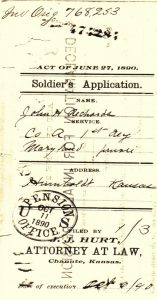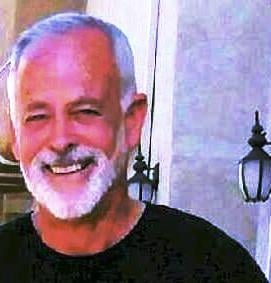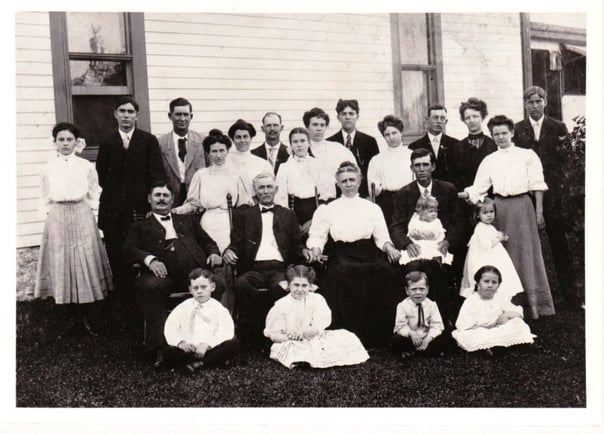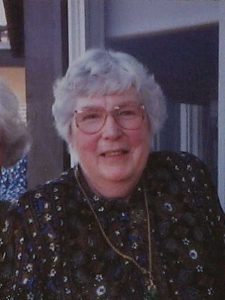It was late one summer, sometime toward the end of the last century, when I received the call. The voice on the other end of the line was that of a woman in the throes of Alzheimer’s disease. Her name was Barbara, and she was pleading with me to “come and get these things.”[i]
Now Barbara wasn’t just anybody to me. She was our “go-to” family historian from the 1960s well into the early 1990s. Cousin Barbara (my grandfather’s paternal first cousin) was the one to call when some question about the family’s facts or folklore arose. I can still hear my grandmother saying, “I don’t know the answer. You need to call Barbara…” To this day I still rely heavily on Barbara’s original and painstakingly completed research.
As I had been infected with a case of genealogical thirst at a very young age, I immediately made the two-hour drive to Barbara’s home in the coastal hills outside of San Francisco. As I drove there I felt so many emotions. I felt chagrinned at the devastation of Barbara’s disease, and yet selfishly hopeful, too – that there would be genealogical answers waiting for me in Barbara’s work.
When I arrived, Barbara was making a mad dash through her papers and books placing things in stacks and boxes. I tried to get her to slow down a bit, or to take a breath, but it was as if she was on some ‘time is running out’ mission all of her own. I looked around her once tidy study to see that it was now in a state of organized chaos. A blank Commodore 64-ish computer screen stared at me, as if to ask why I had taken so long to get there?
I asked my cousin what it was she needed from me, and she replied, “To take care of these things while I still know what they are and am still able to give them to you.”
 Barbara handed me a box of books and files with the admonition, Give these to the Cull family.” When I protested that I had no idea who the Cull family was, she said “You will find them” and “Just look in the box.” At that, she continued on her relentless mission into the back bedroom where after much searching she emerged with two large stacks, each about the size of a telephone book and replete with yellowed paper and faded photocopies. She handed these to me in one big swoop, and said “Here are grandpa’s pension records; you see what you can do with it.” I asked myself, “Grandpa’s pension records? Who’s grandpa?”
Barbara handed me a box of books and files with the admonition, Give these to the Cull family.” When I protested that I had no idea who the Cull family was, she said “You will find them” and “Just look in the box.” At that, she continued on her relentless mission into the back bedroom where after much searching she emerged with two large stacks, each about the size of a telephone book and replete with yellowed paper and faded photocopies. She handed these to me in one big swoop, and said “Here are grandpa’s pension records; you see what you can do with it.” I asked myself, “Grandpa’s pension records? Who’s grandpa?”
My cousin explained to me as best as she could that “Grandpa’s” pension had been granted to him in the 1890s and then revoked. More than this she didn’t or wasn’t able to say.[ii]
Barbara was winding down. She was passing the torch. I wonder if she realized that she was passing the torch to a first cousin twice removed – not the most obvious choice to keep the flame alive. I like to think that she did know, and that somehow she had recognized in me what she saw in herself, i.e., that genealogical yearning, that singular spark. It’s the same spark we who participate in Vita Brevis all share. It is also what we seek – someone to safeguard the legacy of our genealogical work. Unless we have made special arrangements, most of the time we don’t know who that will be. I was lucky that day. My cousin Barbara was choosing me.
So I went home that day with Barbara’s boxes and papers. And soon enough I found the Cull family, a family that was associated with Barbara’s husband and not my own. I found an address buried in the papers and books in the box for a Mr. Cull. I wrote to him and explained Barbara’s wishes. Later that fall I was able to return those folders, notes, and books in that same box to Mr. Cull and his family.
Grandpa’s pension would prove to be another story. With regard to my great-great-grandfather John Henry Record’s Civil War pension, Barbara was handing over to me eighty-plus years of correspondence, affidavits, and bills presented before Congress, etc. Cousin Barbara was definitely passing the torch on this one. I soon realized that all of this paperwork had come down to her through her mother and her grandmother before. What an exciting mess of a mystery it was all going to prove to be!
I am reminded of what Jan Doerr posted in Vita Brevis about “What's left behind” and how we are not defined by what we leave behind, but more so by what is kept.[iii] Who do we trust to keep these things? I am grateful to Barbara for choosing me. It was to be the last time I would see my cousin. All too soon the cousin who knew every little detail of our family’s history would no longer remember my name. I will not soon forget hers.
Notes
[i] Barbara Andruss Irwin, daughter of Grace Record Andruss, sister to my great-grandfather Frank Record.
[ii] The pension records of John Henry Record (1840–1915), my great-great-grandfather, with records beginning about 1890 and continuing through 1999, on file with the National Archives and Records Administration.
[iii] Jan Doerr, “What's left behind,” Vita Brevis, 13 March 2017.
Share this:

About Jeff Record
Jeff Record received a B.A. degree in Philosophy from Santa Clara University, and works as a teaching assistant with special needs children at a local school. He recently co-authored with Christopher C. Child, “William and Lydia (Swift) Young of Windham, Connecticut: A John Howland and Richard Warren Line,” for the Mayflower Descendant. Jeff enjoys helping his ancestors complete their unfinished business, and successfully petitioned the Secretary of the Army to overturn a 150 year old dishonorable Civil War discharge. A former Elder with the Mother Lode Colony of Mayflower Descendants in the State of California, Jeff and his wife currently live with their Golden Retriever near California’s Gold Country where he continues to explore, discover, and research family history.View all posts by Jeff Record →

